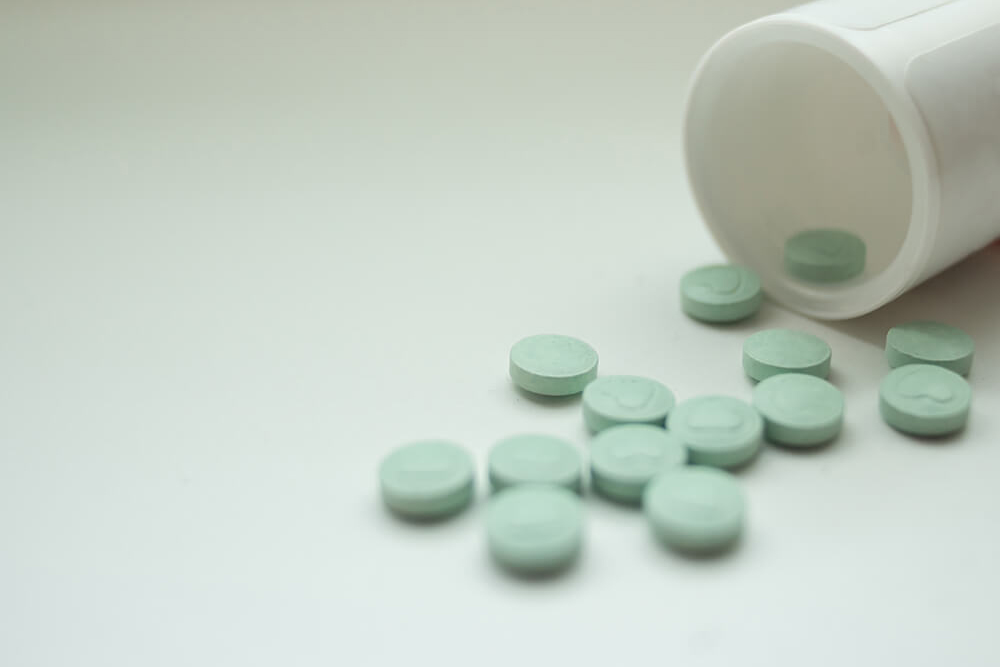When going on a retreat to explore psychedelics, it’s essential to be mindful of potential medication interactions, especially between antidepressants and psilocybin or DMT. While dangerous interactions are exceedingly rare, certain medications can impact the strength and effectiveness of the psychedelic experience. In this blog post, we’ll take a closer look at the usual medication interactions with psilocybin and N-DMT, while also offering important considerations for those curious about exploring these substances.
We’ve done our best to compile a comprehensive list, but please note that it may not cover all medications. If you’re uncertain about a specific medication not listed here, don’t hesitate to contact us before the booking process. We’re here to support you and may refer you to consult with a psychopharmacologist specializing in psychedelic studies for personalized guidance.
This list focuses primarily on interactions that can occur with psilocybin or N-DMT and DOES NOT APPLY to other psychedelics or empathogens like ayahuasca, 5-MEO-DMT, or MDMA. This list was designed to apply to the substances you can expect to encounter at Eleusinia Retreat and should not be used to guide practices related to any other substances.
If you are considering using these substances and are currently on medications that affect the serotonin system or MAO activity, it is essential to consult with a healthcare professional before making any decisions about changing your medication dosing or schedule. This list is provided for educational purposes only.

Interaction of Psilocybin and N,N-DMT with Serotonin System Medications
Psilocybin and N,N-DMT are serotonergic psychedelics, meaning they bind to and activate serotonin receptors in the brain. Understanding the serotonin system is fundamental when contemplating the use of psilocybin or N,N-DMT alongside medications that also interact with this system. While serotonin is implicated in a multitude of physiological processes, it is not the singular regulator of any.
SSRIs, SPARI, and SNRIs:
Selective Serotonin Reuptake Inhibitors (SSRIs), Selective Serotonin and Norepinephrine Reuptake Inhibitors (SNRIs), and Serotonin Partial Agonist Reuptake Inhibitors (SPARI) are commonly prescribed antidepressants. Using these medications in conjunction with or shortly before or after psilocybin use might not be dangerous, but it could impact the quality of the psychedelic experience. Chronic use of these medications may result in down-regulation of 5HT2A receptors, leading to blunted psychedelic effects. These medications can interfere with psychedelic effects if taken within 2 weeks of the experience (except for fluoxetine) or 6 weeks prior for fluoxetine.
Common SSRIs: Paroxetine (Paxil), Sertraline (Zoloft), Citalopram (Celexa), Escitalopram (Lexapro), Fluoxetine (Prozac), Fluvoxamine (Luvox)
Common SPARI: Viibryd (Vilazodone), Trintellix (Vortioxetine)
Common SNRIs: Venlafaxine (Effexor), Duloxetine (Cymbalta), Desvenlafaxine (Pristiq), Levomilnacipran (Fetzima)
DNRI (Wellbutrin and Auvelity):
Norepinephrine and dopamine reuptake inhibitors (DNRI) do not have a blunting effect on psychedelic experiences and should not interfere in any significant way with their effects.
Common DNRIs: Buproprion (Wellbutrin), Bupropion/dextromethorphan (Auvelity),
Mirtazapine (Remeron):
Unlike SSRIs and other antidepressants, Mirtazapine directly blocks the 5HT2A receptor, resulting in a blunting or loss of psychedelic effects. This medication can interfere with psychedelic effects if taken within 2 weeks of the experience.
Tricyclic Antidepressants:
Chronic use of Tricyclic Antidepressants (TCA) has been reported to increase the subjective effects of some psychedelics. For a more predictable and safe psychedelic experience, keep in mind that these medications can interfere with psychedelic effects if taken within 2 weeks of the experience.
Common TCAs: Amitriptyline (Elavil), Nortriptyline (Pamelor), Clomipramine (Anafranil), Imipramine (Tofranil), Desipramine (Norpramin), Chlorpheniramine
Trazodone (Desyrel):
Trazodone, commonly prescribed for sleep and anxiety, blocks 5HT2A receptors at lower doses and starts blocking the serotonin reuptake pump at higher doses. It also has an active metabolite that blocks 5HT2A receptors. These medications can interfere with psychedelic effects if taken within 5 days of the experience.
Buspirone (Buspar):
Buspirone, a non-psychedelic partial agonist at serotonin receptors, might display blunting effects when combined with psychedelics. This medication can interfere with psychedelic effects if taken within 5 days of the experience.
MAO-A and MAO-B Inhibitors:
Monoamine Oxidase Inhibitors (MAOIs) are used in the treatment of depression and Parkinson’s disease. Chronic use of MAO-A Inhibitors can lead to blunted psychedelic effects, while short-term use may potentiate them. MAO-A Inhibitors are likely to interfere with psychedelic effects if taken within 2 weeks of an experience.
Common MAO-A Inhibitors: Phenelzine (Nardil), Isocarboxazid (Marplan), Tranylcypromine (Parnate), Moclobemide
MAO-B inhibitors, such as Selegeline (Emsam), metabolize dopamine and are more commonly used for Parkinson’s disease and may also be indicated as antidepressants. Intensified psychedelic effects are possible, but significant adverse reactions are unlikely.
Antipsychotics/Mood Stabilizers
Antipsychotics are prescription drugs that typically act by blocking the 5HT2A receptor, which plays a crucial role in the psychedelic experience. As a result, their presence can directly impede the effects of psychedelics.
Given that these medications are primarily prescribed for schizophrenia and bipolar disorders, particularly to manage manic episodes, their usage may signal a potential contraindication for the use of psychedelic drugs, as the conditions they commonly treat are considered contraindications. However, it’s worth noting that the application of antipsychotics extends beyond the treatment of psychotic or bipolar disorders. They are now frequently employed as adjunctive therapies for depression, insomnia, or generalized anxiety.
Common antipsychotics: Quetiapine (Seroquel), Aripiprazole (Abilify), Olanzapine (Zyprexa), Risperidone (Risperdal), Ziprasidone (Geodon), Lurasidone (Latuda)
Lithium
Lithium
Lithium is a medication known for its complexity, and it carries inherent risks that can lead to seizures or acute toxicity, which may result in fatal reactions. To mitigate these risks, it is strongly advised to refrain from consuming prescription-strength lithium for a minimum of 30 days prior to engaging in a psychedelic experience. Furthermore, it is strictly prohibited to participate in any activities at Eleusinia within this timeframe.

Conclusion
While dangerous medication interactions with psilocybin and DMT are rare, understanding potential risks and precautions is crucial for a safe and meaningful psychedelic experience. Responsible and informed usage can lead to profound and transformative experiences while minimizing potential risks. Always prioritize your well-being and safety before embarking on psychedelic exploration.






3 Responses
thank you Jessica for putting this together as it’s definitely something we are worried about if taking any of this meds !!!
I take both Venlafaxine and Mirtazapine and since I only recently emerged from a deep depression did not taper either prior to my psilocybin trip. Being on them completely negated any psychedelic effects. Thank-you for helping me understand why the mushrooms had little impact compared to others.
Great article, thanks. I am interested to know which antidepressants ARE compatible with psychedelics in terms of not blunting their effects, particularly for combined usage with microdosing psilocybin.
Wellbutrin seems to stand out as one. I see you also have Auvelity, but according to some articles I’ve read dextromethorphan also acts as a serotonin reuptake inhibitor, eg:
https://www.ncbi.nlm.nih.gov/pmc/articles/PMC9577655/
Any further thoughts on that?
Are there any other antidepressants you are aware of that won’t cause blunting?
Thank you!